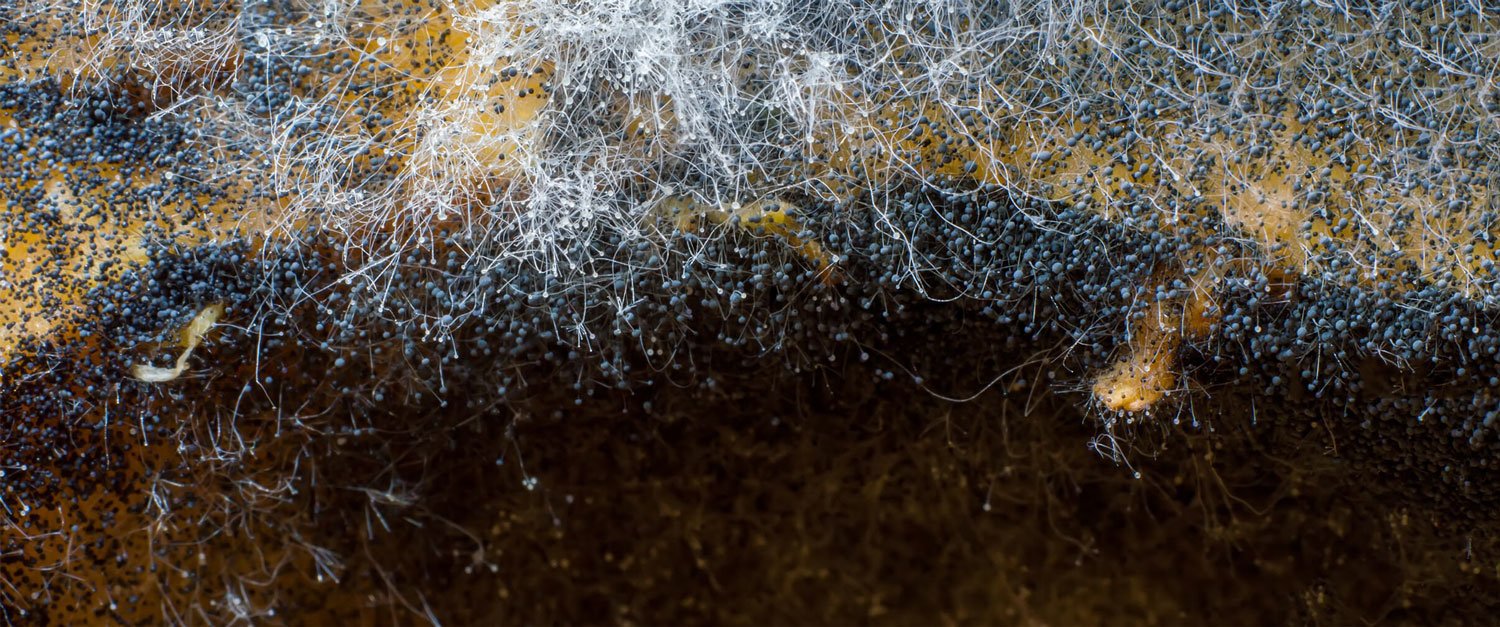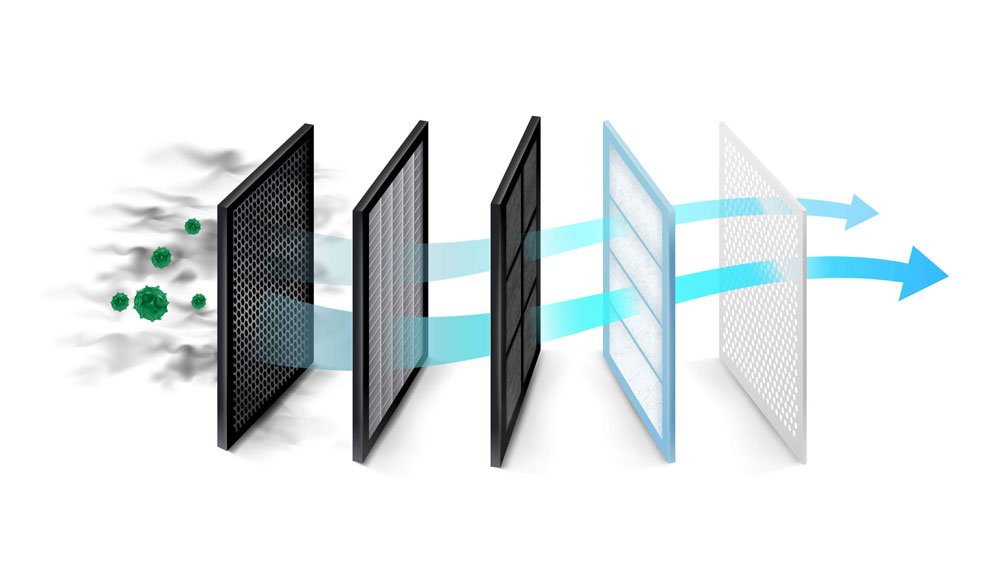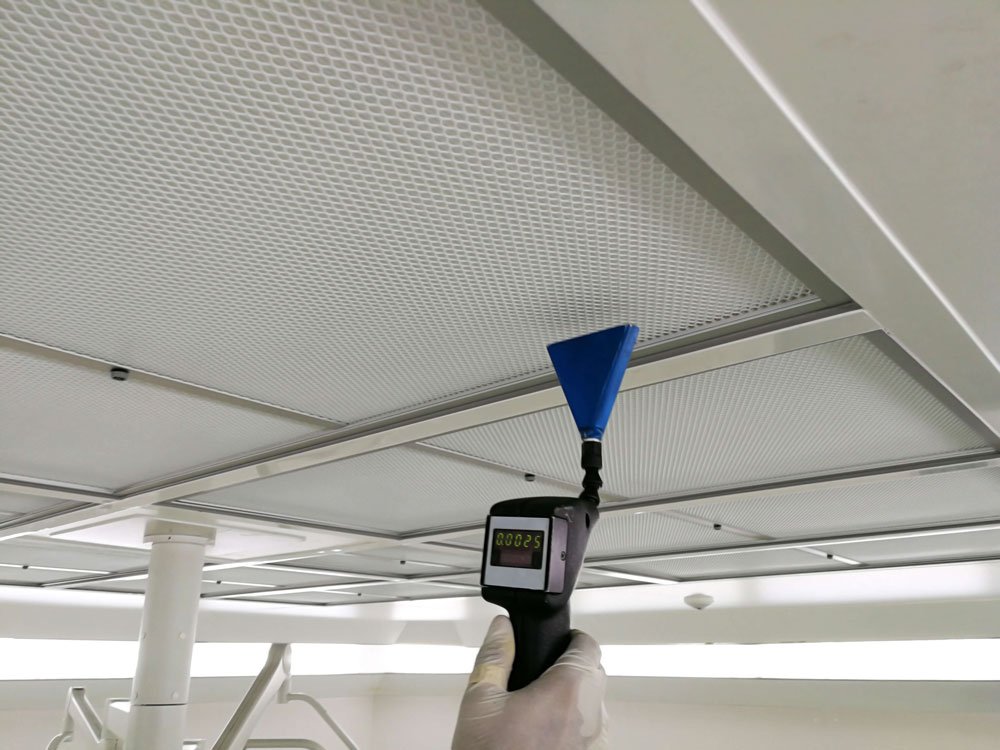How To Remove Mould Spores From The Air

CONTENTS
- What are mould spores?
- How long do mould spores stay in the air?
- Do air purifiers remove mould spores?
- How to regulate humidity in your home
- Other ways you can reduce mould spores
- Considerations when it comes to mould spores
- Know when to call in the professionals
- Get in touch
Mould is not only an unsightly issue, but it is also incredibly hard to tackle and remove. This is because of the presence of mould spores, which are the main reason why we see it return after remediation.
Here at ICE Cleaning, we are mould removal specialists and specialise in discovering the source of mould and eradicating it thoroughly. Our Dewpoint-accredited technicians can significantly improve the air quality in your property with our remediation services, and have years of experience in providing excellent results for customers.
Read on to learn more about mould spores and how you can remove them.
What are mould spores?
Mould spores are produced by existing mould and can be found everywhere. They are airborne and linger in the air in any climate. Various mould fungi are incredibly beneficial to us humans, such as penicillin.
However, there are other strains – such as standard black mould – that are incredibly hazardous to human health and can lead to a range of respiratory issues, even among the healthiest of people.
It can take anywhere between 20-50 hours after the mould spores have landed on a damp area for the infestation to start and the mould strain to become hazardous. This fungus thrives on moisture and can rapidly reproduce through lightweight, tiny spores that travel through the air.
Small amounts of mould spores are not harmful. We naturally breathe in non-hazardous particles every day. However, when large amounts of airborne spores land on damp spots within your home, issues may arise if they are not dealt with promptly.
How long do mould spores stay in the air?
Mould spores are forever floating in the air searching for organic materials to decompose. They remain airborne for an indefinite period. It is important to recognise that if a damp spot is present and unattended for longer than 24 hours, there is a high possibility that mould could fester and airborne spores might begin congregating throughout the premises.
A high concentration of these units can be extremely hazardous to humans. Those with allergies or sensitivity to mould could begin showing symptoms like:
- Stuffy nose
- Wheezing
- Irritated skin
- Red or watery eyes
- Fever
- Shortness of breath
- Fatigue
Do air purifiers remove mould spores?
Air purifiers have been proven to significantly help the removal of spores within the air. However, the device itself will not treat the leading cause of the fungus. An air purifier draws the air into its filters and captures tiny airborne particles such as smoke, dust and mould spores.
Clean air is then circulated throughout the room, leaving the air feeling drier and more hygienic. It is advised that you use an air purifier to filter out harmful mould spores and prevent growth. However, this technology should only be used at the end of the mould remediation process for maximum and long-term effects.

How to regulate humidity in your home
We all know that mould thrives off moisture, so maintaining humidity levels throughout your property will be essential to prevent it from forming. Rooms that generally accumulate high levels of humidity are bathrooms and kitchens. You should ensure that you have an extraction fan in both of these rooms and close the doors when you use them.
If humidity levels are controlled within your home, it could significantly reduce the chances of mould forming. You could use a dehumidifier, which is a leading industry technology for reducing humidity. Depending on the size of the property or room affected, the treatment may only take a day.

Other ways you can reduce mould spores
There are other things that you can do to reduce the presence of mould spores that do not include spending money. If you are looking for less costly ways to do this, other methods can help you:
Open doors and windows
One of the most simple ways to lessen the chances of mould spores taking over your house is to physically direct them to an exit in your property. Leaving a back door or window open can increase the property’s airflow, allowing the spores to disperse into the atmosphere.
Utilise ventilation appliances
If you have any ventilation appliances built into your property, we would encourage you to turn them on to maximum capacity for a couple of days. This will increase the chances of removing all highly concentrated air spores within your home. You should also stay out of the premises for as long as possible to limit the possibility of you breathing in any spores.
Maintain a cleaning schedule
When you begin cleaning your house, make sure you have the correct personal protective equipment on. Otherwise, you could become ill through inhaling too many chemicals from both the products being used and the invisible toxic particles present in the air.
Cleaning your furniture and carpets regularly
Fabrics can become covered in mildew and mould spores due to their porous nature. By vacuuming or steaming your carpet, you can help treat fungus growing on the surface. This will stop mould spores from dispersing elsewhere, and help prevent you from inhaling high concentrations of toxins. You should also consider vacuuming and steam cleaning:
- Rugs
- Sofas
- Other fabric furniture
While all of these tips can assist in decreasing the number of mould spores within your property, they are only a short-term solution. To properly tackle mould spores, you must get to the root cause by engaging in the use of a professional cleaning company.
Considerations when it comes to mould spores
It's important to understand that removing mould will also create hazardous spores to evaporate into the air in greater quantities than that already present. You must be wearing the correct PPE (Personal Protective Equipment) before attempting to tackle the mould yourself.
We advise that all elderly, young, and immune-compromised individuals stay away from the premises whilst the cleaning is in process and, if possible, avoid returning to the property for at least a day. Remember, just because you have eliminated the visible appearance of mould, it does not mean that the problem has disappeared.
Know when to call in the professionals
While it may be financially cheaper to use DIY solutions like vinegar or bleach, you will never know if you have effectively treated the mould, or if it is just going to return in a couple of days. When you call us, our specialists will assess your entire property and locate the primary source of the mould. This could be down to something as small as:
- A leak in the wall
- Leaking taps
- Low airflow throughout the property
- Lack of exhaust fans
- Lack of heating throughout the property
- Rainwater and/or drains that fall onto the house
Get in touch
If you believe you need mould remediation services, you can rely on our team at ICE Cleaning. Our cleaners will conduct an on-site survey where we test the air for spores, and identify any sources of mould. With our lifetime guarantee* we can prevent the mould from returning and we will conduct another treatment for free if it has returned.
You can get in touch with our friendly customer support team at 0208 066 0360 or enquiries@icecleaning.co.uk. We can answer any questions or concerns you may have, and we are available day and night, 365 days a year, nationwide.

Speak with me today,
I’m here to help
By asking you a few questions either via phone or email I can immediately provide a realistic estimation of the cost.
You’re in good company. We’ve cleaned for the following commercial clients… View all

Why choose us?
- Cater to a wide variety of cleaning situations
- Nationwide coverage, available 24/7
- Cater to commercial and domestic clients
- Free survey provided prior to quotation
- Emergency response team
- Offer a bespoke service designed to suit all your needs
- All technicians hold professional health and safety qualifications, including BICSc, IOSH, Dewpoint Professional & Safe Contractor
We’re fully accredited
We place best practise, professional expertise and health and safety at the core of our business. We’re fully compliant with all legal obligations. You can view a list of our accreditations below, or visit our Health & Safety page for more information.











-RGB-small.1707319151.jpg)




















